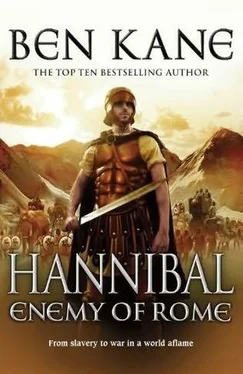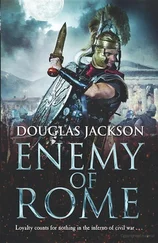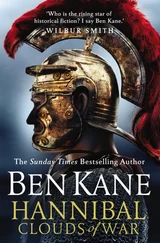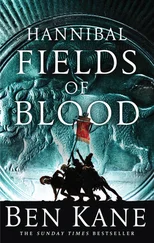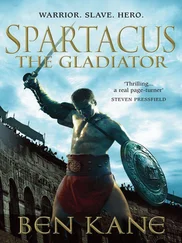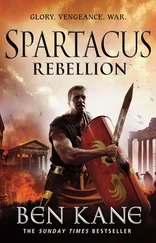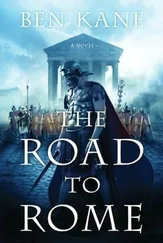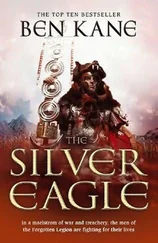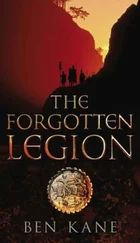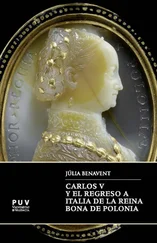Ben Kane - Hannibal - Enemy of Rome
Здесь есть возможность читать онлайн «Ben Kane - Hannibal - Enemy of Rome» весь текст электронной книги совершенно бесплатно (целиком полную версию без сокращений). В некоторых случаях можно слушать аудио, скачать через торрент в формате fb2 и присутствует краткое содержание. Жанр: Исторические приключения, на английском языке. Описание произведения, (предисловие) а так же отзывы посетителей доступны на портале библиотеки ЛибКат.
- Название:Hannibal: Enemy of Rome
- Автор:
- Жанр:
- Год:неизвестен
- ISBN:нет данных
- Рейтинг книги:4 / 5. Голосов: 1
-
Избранное:Добавить в избранное
- Отзывы:
-
Ваша оценка:
- 80
- 1
- 2
- 3
- 4
- 5
Hannibal: Enemy of Rome: краткое содержание, описание и аннотация
Предлагаем к чтению аннотацию, описание, краткое содержание или предисловие (зависит от того, что написал сам автор книги «Hannibal: Enemy of Rome»). Если вы не нашли необходимую информацию о книге — напишите в комментариях, мы постараемся отыскать её.
Hannibal: Enemy of Rome — читать онлайн бесплатно полную книгу (весь текст) целиком
Ниже представлен текст книги, разбитый по страницам. Система сохранения места последней прочитанной страницы, позволяет с удобством читать онлайн бесплатно книгу «Hannibal: Enemy of Rome», без необходимости каждый раз заново искать на чём Вы остановились. Поставьте закладку, и сможете в любой момент перейти на страницу, на которой закончили чтение.
Интервал:
Закладка:
Ben Kane
Hannibal: Enemy of Rome
Chapter I: Hanno
Carthage, spring
‘Hanno!’ his father’s voice echoed off the painted stucco walls. ‘It’s time to go.’
Stepping carefully over the gutter that carried liquid waste out to the soakaway in the street, Hanno looked back. He was torn between his duty and the urgent gestures of his friend, Suniaton. The political meetings his father had recently insisted he attend bored him to tears. Each one he’d been to followed exactly the same path. A group of self-important, bearded elders, clearly fond of the sound of their own voices, made interminable speeches about how Hannibal Barca’s actions in Iberia were exceeding the remit granted to him. Malchus — his father — and his closest allies, who supported Hannibal, said little or nothing until the greybeards had fallen silent, when they would stand forth one by one. Invariably, Malchus spoke last of all. His words seldom varied. Hannibal, who had been commander in Iberia for just three years, was doing an outstanding job in cementing Carthage’s hold over the wild native tribes, forming a disciplined army and, most importantly, filling the city’s coffers with the silver from his mines. Who else was pursuing such heroic and worthy endeavours while simultaneously enriching Carthage? In defending the tribes who had been attacked by Saguntum, a city allied to Rome, he was merely reinforcing their people’s sovereignty in Iberia. On these grounds, the young Barca should be left to his own devices.
Hanno knew that what motivated the politicians was fear, partly assuaged by the thought of Hannibal’s forces, and greed, partly satisfied by the shiploads of precious metal from Iberia. Malchus’ carefully chosen words therefore normally swayed the Senate in Hannibal’s favour, but only after endless hours of debate. The interminable politicking made Hanno want to scream, and to tell the old fools what he really thought of them. Of course he would never shame his father in that manner, but nor could he face yet another day stuck indoors. The idea of a fishing trip held too much appeal.
One of Hannibal’s messengers regularly came to bring his father news from Iberia, and had visited not a week since. The night-time rendezvous were supposed to be a secret, but Hanno had soon come to recognise the cloaked, sallow-skinned officer. Sapho and Bostar, his older brothers, had been allowed to stand in on the meetings for some time. Swearing Hanno to secrecy, Bostar had filled him in afterwards. Now, if he was able, Hanno simply eavesdropped. In a nutshell, Hannibal had charged Malchus and his allies with the task of ensuring that the politicians continued to back his actions. A showdown with the city of Saguntum was imminent, but conflict with Rome, Carthage’s old enemy, was some way off yet.
The deep, gravelly voice called out again, echoing down the corridor that led to the central courtyard. There was a hint of annoyance in it now. ‘Hanno? We’ll be late.’
Hanno froze. He wasn’t afraid of the dressing down his father would deliver later, more of the disappointed look in his eyes. A scion of one of Carthage’s oldest families, Malchus led by example, and expected his three sons to do the same. At seventeen, Hanno was the youngest. He was also the one who most often failed to meet these exacting standards. For some reason, Malchus expected more of him than he did of Sapho and Bostar. At least that’s how it seemed to Hanno. Yet farming, the traditional source of their wealth, interested him little. Warfare, his father’s preferred vocation, and Hanno’s great fascination, was barred to him still, thanks to his youth. His brothers would be sailing for Iberia any day. There, no doubt, they would cover themselves in glory in the taking of Saguntum. Frustration and resentment filled Hanno. All he could do was practise his riding and weapons skills. Life as ordained by his father was so boring, he thought, choosing to ignore Malchus’ oft-repeated statement: ‘Be patient. All good things come to those who wait.’
‘Come on!’ urged Suniaton, thumping Hanno on the arm. His gold earrings jingled as he jerked his head in the direction of the harbour. ‘The fishermen found huge shoals of tunny in the bay at dawn. With Melqart’s blessing, the fish won’t have moved far. We’ll catch dozens. Think of the money to be made!’ His voice dropped to a whisper. ‘I’ve taken an amphora of wine from Father’s cellar. We can share it on the boat.’
Unable to resist his friend’s offer, Hanno blocked his ears to Malchus’ voice, which was coming closer. Tunny was one of the most prized fish in the Mediterranean. If the shoals were close to shore, this was an opportunity too good to miss. Stepping into the rutted street, he glanced once more at the symbol etched into the stone slab before the flat-roofed house’s entrance. An inverted triangle topped by a flat line and then a circle, it represented his people’s pre-eminent deity. Few dwellings were without it. Hanno asked Tanit’s forgiveness for disobeying his father’s wishes, but his excitement was such that he forgot to ask for the mother goddess’s protection.
‘Hanno!’ His father’s voice was very near now.
Without further ado, the two young men darted off into the crowd. Both their families dwelled near the top of Byrsa Hill. At the summit, reached by a monumental staircase of sixty steps, was an immense temple dedicated to Eshmoun, the god of fertility, health and well-being. Suniaton lived with his family in the sprawling complex behind the shrine, where his father served as a priest. Named in honour of the deity, Eshmuniaton — abbreviated to Suniaton or simply Suni — was Hanno’s oldest and closest friend. The pair had scarcely spent a day out of each other’s company since they were old enough to walk.
The rest of the neighbourhood was primarily residential. Byrsa was one of the richer quarters, as its wide, straight thoroughfares and right-angled intersections proved. The majority of the city’s winding streets were no more than ten paces across, but here they averaged more than twice this width. In addition to wealthy merchants and senior army officers, the suffetes — judges — and many elders also called the area home. For this reason, Hanno ran with his gaze directed at the packed earth and the regular soak-away holes beneath his feet. Plenty of people knew who he was. The last thing he wanted was to be stopped and challenged by one of Malchus’ numerous political opponents. To be dragged back home by the ear would be embarrassing and bring dishonour to his family.
As long as they didn’t catch anyone’s eye, he and his friend would pass unnoticed. Bare-headed and wearing tight-fitting red woollen singlets, with a central white stripe and a distinctive wide neckband, and breeches that reached to the knee, the pair looked no different to other well-to-do youths. Their garb was far more practical than the long straight wool tunics and conical felt hats favoured by most adult men, and more comfortable than the ornate jacket and pleated apron worn by those of Cypriot extraction. Sheathed daggers hung from simple leather straps thrown over their shoulders. Suniaton carried a bulging pack on his back.
Although people said that they could pass for brothers, Hanno couldn’t see it most of the time. While he was tall and athletic, Suniaton was short and squat. Naturally, they both had tightly curled black hair and a dark complexion, but there the resemblance ended. Hanno’s face was thin, with a straight nose and high cheekbones, while his friend’s round visage and snub nose were complemented by a jutting chin. They did both have green eyes, Hanno conceded. That feature, unusual among the brown-eyed Carthaginians, was probably why they were thought to be siblings.
Читать дальшеИнтервал:
Закладка:
Похожие книги на «Hannibal: Enemy of Rome»
Представляем Вашему вниманию похожие книги на «Hannibal: Enemy of Rome» списком для выбора. Мы отобрали схожую по названию и смыслу литературу в надежде предоставить читателям больше вариантов отыскать новые, интересные, ещё непрочитанные произведения.
Обсуждение, отзывы о книге «Hannibal: Enemy of Rome» и просто собственные мнения читателей. Оставьте ваши комментарии, напишите, что Вы думаете о произведении, его смысле или главных героях. Укажите что конкретно понравилось, а что нет, и почему Вы так считаете.
